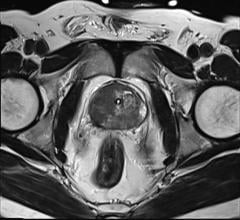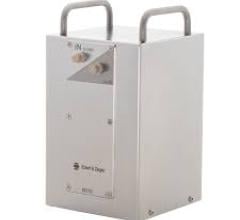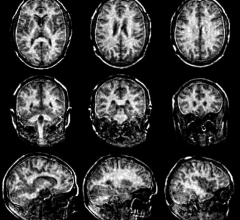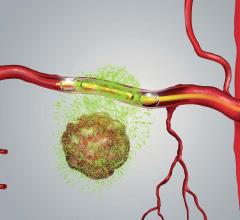October 4, 2013 — Piramal Imaging announced the company has submitted a detailed response to the Council on Medical Service (CMS) regarding the draft decision to limit Medicare coverage of beta-amyloid positron emission tomography (PET) imaging in dementia and neurodegenerative disease.[1] Piramal Imaging's response, originally submitted on July 29, 2013, was posted on CMS's website as part of the public comment process, which was open through August 2. As of August 8, CMS's website indicated more than 200 people had posted responses. Piramal Imaging strongly encourages the public to continue to submit evidence to CMS showing why beta-amyloid imaging is a medically necessary diagnostic tool for appropriate Medicare populations by sending information to [email protected].
In Piramal Imaging's letter to CMS, the company expressed concerns that the CMS draft coverage decision is overly restrictive and, if finalized in its current form, would place an undue burden on physicians, patients and caregivers by delaying the definitive diagnosis of certain types of dementia and neurodegenerative diseases, including Alzheimer's disease (AD).
The letter addresses four specific areas of concern and offers recommendations for consideration which are highlighted below:
- Agreement with CMS's determination that there is a clear benefit to rule out AD in precisely defined patient populations where a differential diagnosis is clinically difficult and to distinguish from other forms of dementia such as frontotemporal dementia. Piramal Imaging has requested Medicare coverage for these patients without requiring enrollment in a clinical trial. Clinical presentation of early onset AD can be difficult to distinguish from other forms of dementia and can present with many atypical features, which obfuscate the diagnosis. The results of beta-amyloid PET imaging thus can help the physician with the differential diagnosis of the patient, leading to identification of other appropriate treatments and tests to administer.[2] It can help the physician determine whether further testing is needed and to select pharmacologic and non-pharmacologic options for the patient's treatable conditions, and it may enable the patient to forgo potentially futile testing and treatment. Furthermore, Piramal Imaging believes there is a patient population for which beta-amyloid PET imaging meets the "reasonable and necessary" threshold for the diagnosis of disease: patients meeting the Appropriate Use Criteria (AUC) developed by the Society of Nuclear Medicine and Molecular Imaging (SNMMI) and the Alzheimer's Association.
- CMS should establish a clear standard of the level of evidence required to expand coverage. CMS should approve any clinical trials that are likely to expeditiously answer one or several of the three proposed research questions without onerous restrictions. Furthermore, CMS should ensure that it approves a sufficient range of clinical trials, allowing for a variety of practical clinical trial designs, providing they address relevant endpoints and help answer all or at least one of CMS' research questions.
- CMS should state in its final decision memo that once a clinical trial meets endpoints as agreed upon by CMS, it will expand Medicare coverage in a corresponding manner without any undue delay. The decision to expand coverage based on the results of a successful clinical trial should not unnecessarily delay the National Coverage Determination process. Medicare beneficiaries should not lose access to diagnostic technologies that have demonstrated clinical benefits in patient outcomes.
- CMS should not require a postmortem autopsy as an endpoint for any CMS-approved clinical trial. Several pivotal autopsy studies demonstrate amyloid imaging agents bind to beta-amyloid in the brain; therefore, further biomarker studies are redundant. According to the Agency for Healthcare Research and Quality (AHRQ) Clinical Research Standard no. 3, "the research study does not unjustifiably duplicate existing studies." Therefore, additional post-mortem autopsy studies would not fulfill the above AHRQ standard. In addition, Medicare beneficiaries may understandably be very uncomfortable or unwilling to agree to such a requirement to undergo a diagnostic imaging scan.
For more information: imaging.piramalenterprises.com
References
[1]Centers for Medicare & Medicaid Services. Proposed decision memo for beta amyloid positron emission tomography in dementia and neurodegenerative disease (CAG-00431N). http://www.cms.gov/medicare-coverage-database/details/nca-proposed-deci…;. Published July 3, 2013. Accessed August 8, 2013
[2]Johnson KA, Minoshima S, Bohnen NI, et al. Appropriate use criteria for amyloid PET: a report of the Amyloid Imaging Task Force, the Society of Nuclear Medicine and Molecular Imaging, and the Alzheimer's Association [published online ahead of print January 28, 2013]. Alzheimer's Dement. doi:10.1016/j.jalz.2013.01.002


 April 10, 2024
April 10, 2024 






![(A) PET images of [68Ga]Ga-DOTA-ZCAM241 uptake at baseline and 3, 7, and 12 days after injection as inflammatory arthritis developed in single representative individual mouse. Images are normalized to SUV of 0.5 for direct comparison between time points. (B) CD69 immunofluorescence Sytox (Thermo Fisher Scientific) staining of joints of representative animals during matching time points.](/sites/default/files/styles/feed_medium/public/PET%20Tracers.jpeg?itok=P5Di6MIe)

